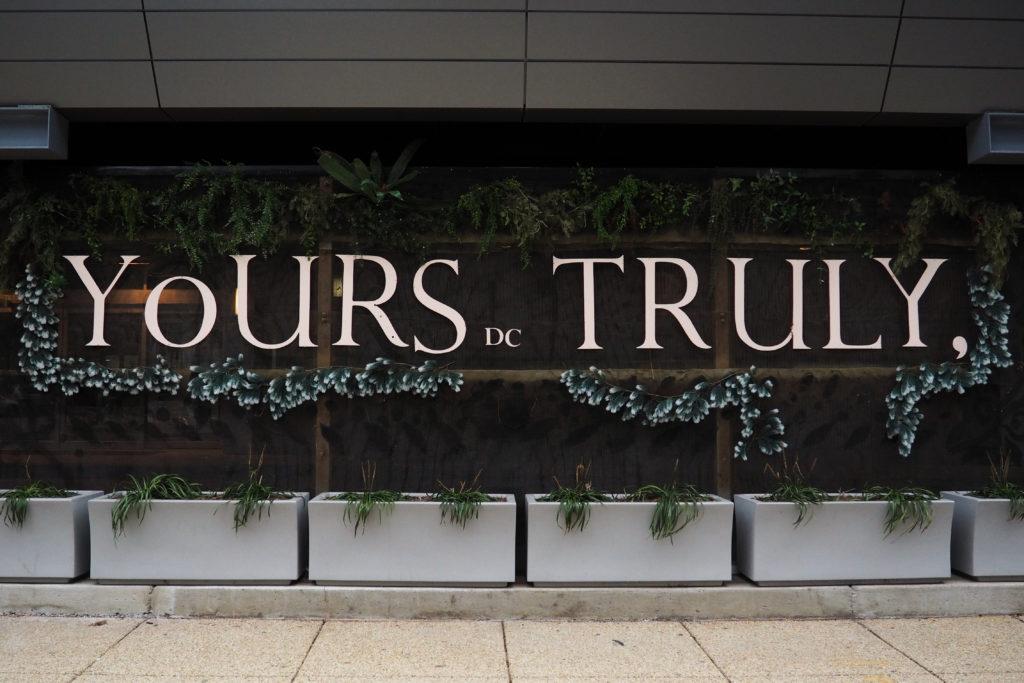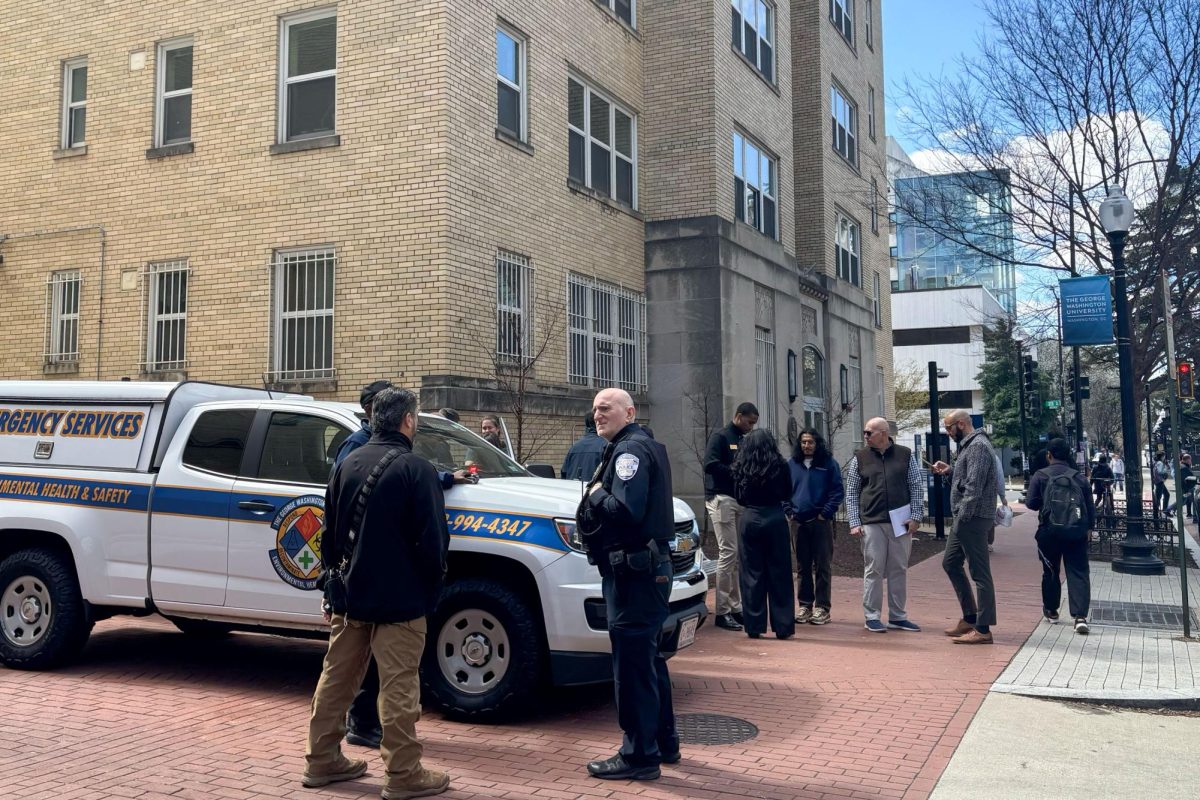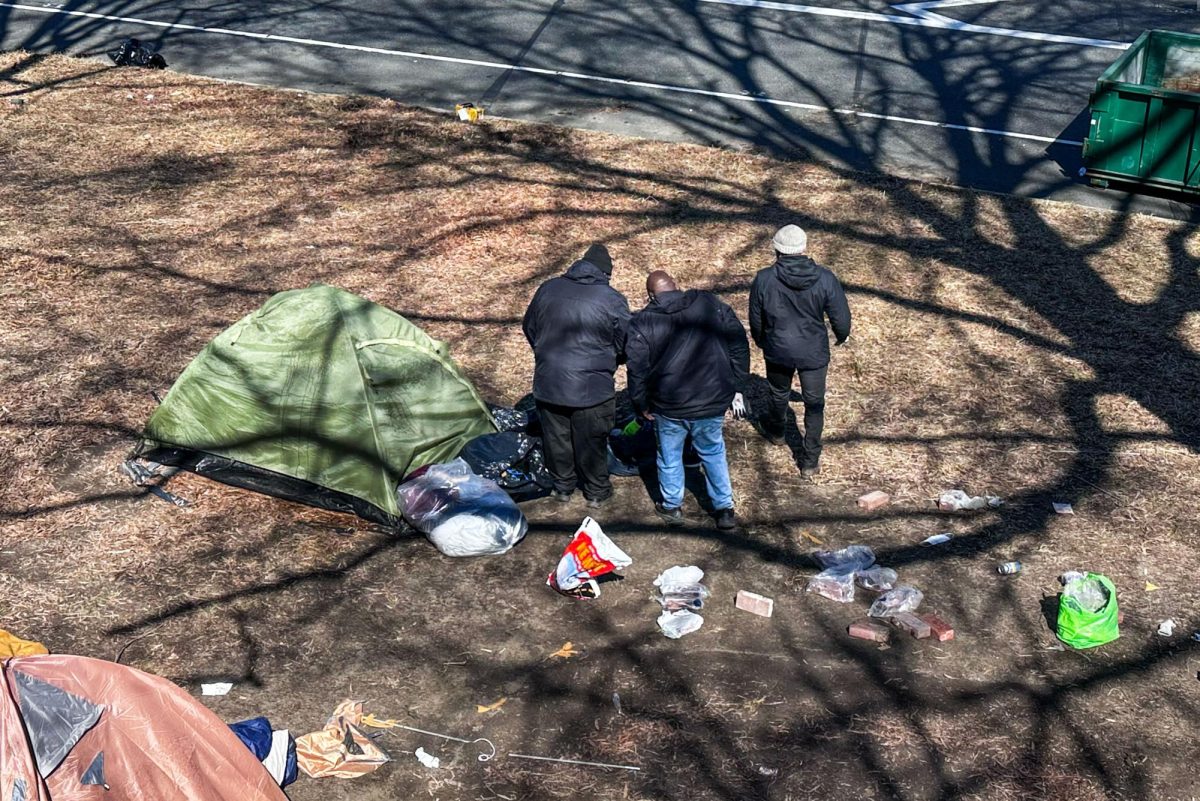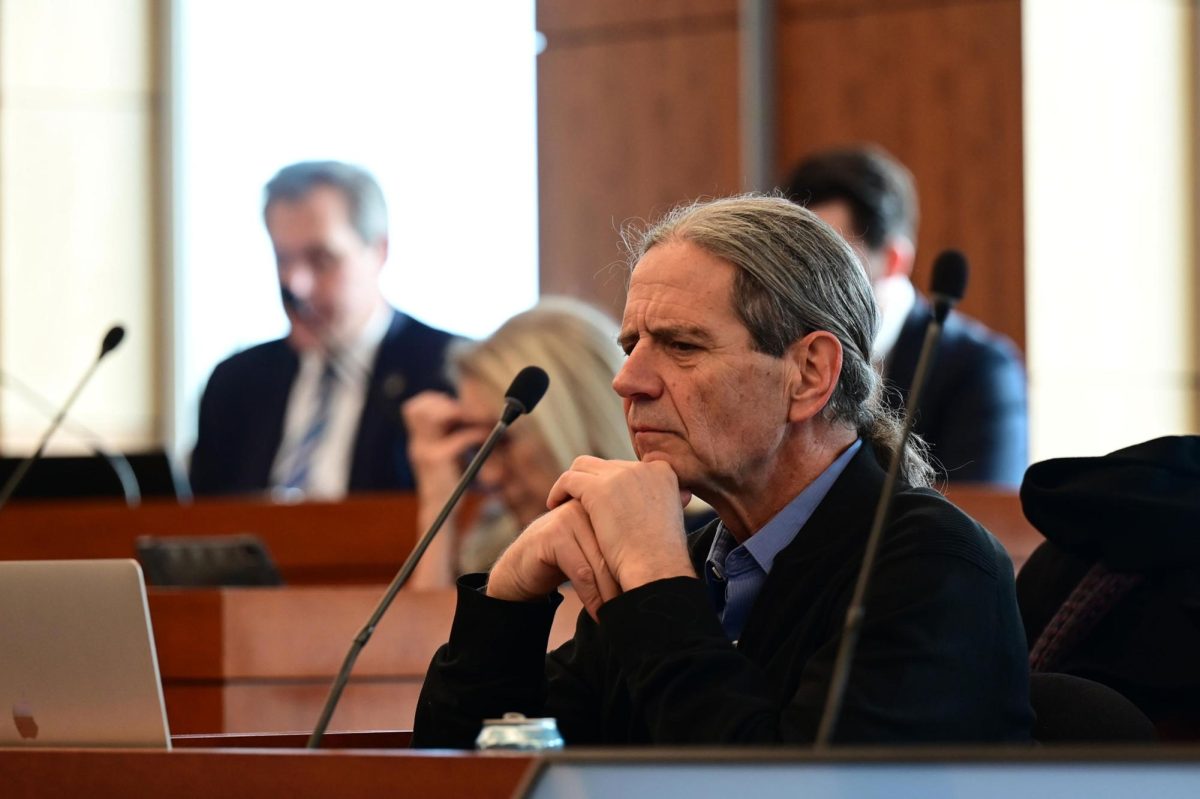A four-star hotel is housing isolated students infected with COVID-19 this semester as part of GW’s latest investment in pandemic mitigation measures.
Yours Truly, a hotel located north of Washington Circle, has taken in between 15 and 25 students each day since the start of the semester, holding some of the more than 1,000 students who have tested positive for the virus this year, University spokesperson Crystal Nosal said. Students said despite hotel rooms with TVs, private elevators and queen-sized beds, $30 daily dining charges and logistical issues have hampered their stays in the hotel.
GW’s move to reserve 250 beds in the hotel until Feb. 26 is one of the University’s largest new investments as officials fight to contain the Omicron variant and keep classes in person.
“As spring 2022 approached, we were seeing that the Omicron variant was fast-spreading,” Nosal said in an email. “Planning for all scenarios, we increased our on-campus isolation capabilities, and we engaged in a contract with Yours Truly Hotel to provide extra capacity and flexibility.”
Nosal said the University charges students isolating in Yours Truly $30 per day in dining cash for three meals – a smaller price than normal room service meals, which the University partially subsidized.
The University grants students without a kitchen $2,445.50 in GWorld dining cash per semester, which provides for roughly $20 of spending per day.
Nosal declined to say how many students are currently in isolation, which buildings on campus are used for isolation and whether students received alternative meal options at Yours Truly. Nosal also declined to say how much the University was paying for the hotel space.
“Anyone who tests positive would stay in their room with their roommates (if they have any) and would be provided the required resources versus being moved to a separate isolation space,” she said in an email. “Residential students who have not tested positive would be allowed to access campus dining and medical/public health facilities, but asked to limit contact with others as much as possible and not leave campus.”
Students living in isolation at the hotel shared mixed reactions toward GW’s handling of their move-in and isolation process, with experiences ranging from anxiety-inducing to simple and easy.
Sophomore Charlie Wild’s return to campus went awry quickly when he tested positive for COVID-19 before moving into Shenkman Hall. Wild proceeded to walk with his suitcase to Yours Truly that afternoon.
He said his time at Yours Truly was “anxiety-provoking” as a result of what he called miscommunication and a lack of clarity from the University, which he said complicated his safe check-in and stay at the hotel.
Wild said a University staff member told him in an email that officials barred isolating students from receiving food or grocery deliveries at Yours Truly. He said he started skipping some hotel meals that weren’t compatible with his lactose intolerant diet, and he didn’t order food from outside the hotel until three days into his stay when hotel employees told him friends or delivery services could drop off meals.
“The email that I received explicitly stated that delivery services like food or grocery or anything like that were not allowed,” Wild said. “And then the hotel said, ‘Yeah, no problem. You can have deliveries.’”
Wild said while looking for vital information about his stay, he initiated nearly all communication with the University, calling various medical, COVID-19 and housing-related hotlines more than 40 times. But he said staff members didn’t share some information, like hotel check-in procedure, until days after he needed it.
He said he approached the hotel’s main door instead of a separate check-in door for students who were infected with the coronavirus because he did not receive GW’s communication about the move-in process in time.
Wild said University officials waited until his ninth day in isolation to conduct any form of contact tracing, when the COVID-19 support team sent him a survey that included questions about his recent close contacts. He said he had to rely on his friends to deliver vital items like medication, which made him feel like a burden during his stay.
“I really think that the University should have someone that’s responsible for that, for some type of delivery service so that you’re not making your friends do that,” he said.
The University provides students with a “student affairs support team liaison” who helps deliver groceries and other essentials to residents isolating with the virus on campus, according to an email that GW sent to residents earlier this month.
Vincent Patierno, a junior who isolated in Yours Truly, said he received GW’s emails about the hotel’s check-in policy and took a service elevator up to his hotel room Tuesday, which included a king-size bed and TV. Patierno said he reported his positive at-home COVID-19 test results to the Colonial Health Center last Monday but received guidance for his isolation more than a day later after he reached out to his District House community coordinator.
“I had to contact my community coordinator in District House for next steps because the CHC never contacted me,” he said in an email. “After 36 hours, I reached out for help because my roommate was away waiting for my next steps.”
Patierno said officials required him to submit a credit card number for potential incidental charges related to his stay at the hotel, and he expects GW will charge him for hotel meals even if he decided to order food deliveries. He said the overrun move-in process for isolation disrupted his roommate’s ability to return to campus while he waited to move into Yours Truly.
“The system as they have it designed currently is overwhelmed, but everyone is doing their best,” he said. “Other than that, I wish maybe students were allowed to get some fresh air at least once per day.”
Thomas Carrigan was at his internship on Capitol Hill Jan. 12 when officials called to notify him that he tested positive for COVID-19 and needed to pack for a 10-day stay at Yours Truly. Carrigan said staff clearly communicated instructions regarding hotel check-in and grocery and meal delivery, which hotel staff brought to his door.
“You just put in the notes to leave it at the front desk and tell them what room number, and then as soon as they drop it off, you get a call from the front desk that your order is ready,” Carrigan said.
He said even though the University successfully coordinated some parts of his hotel isolation, two of his classes lacked online or recorded options, forcing him to fall behind and miss class.
“Fortunately, two of them did move virtual because of some circumstances where my professors had tested positive or someone in their family had tested positive so they moved them online,” he said. “But two of my other classes, they were still in person, so I had to miss them.”
Leo Kehagias contributed reporting.








